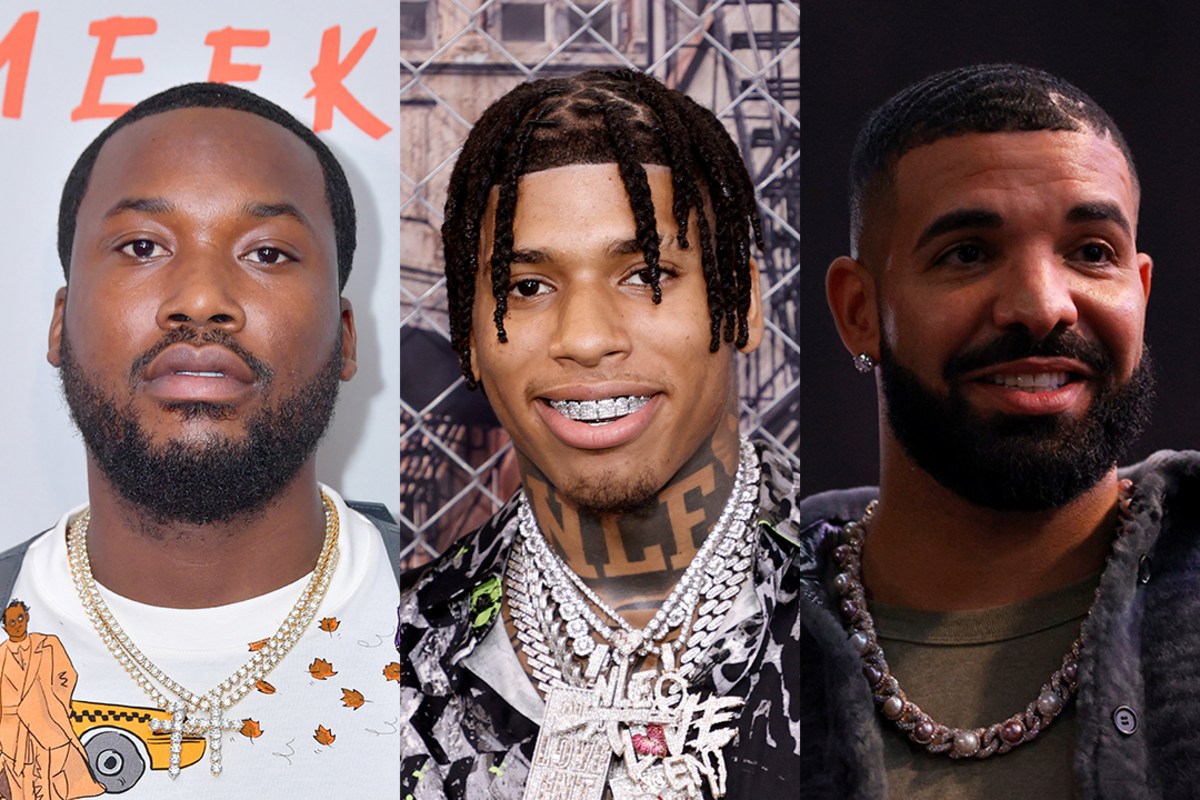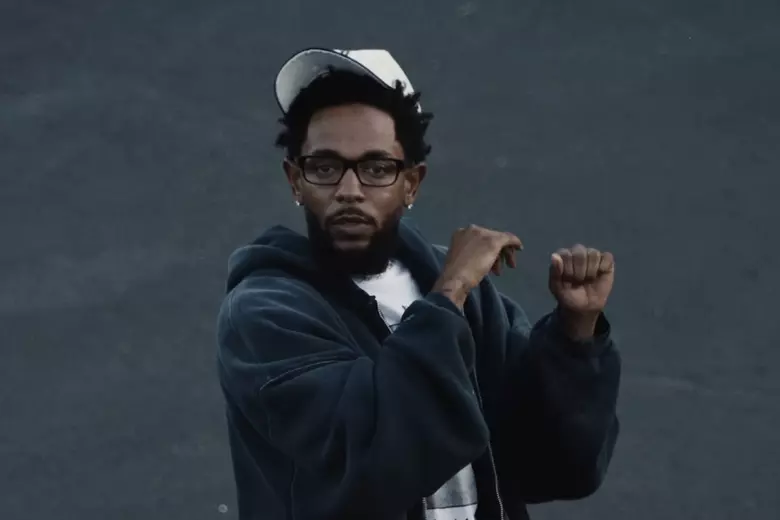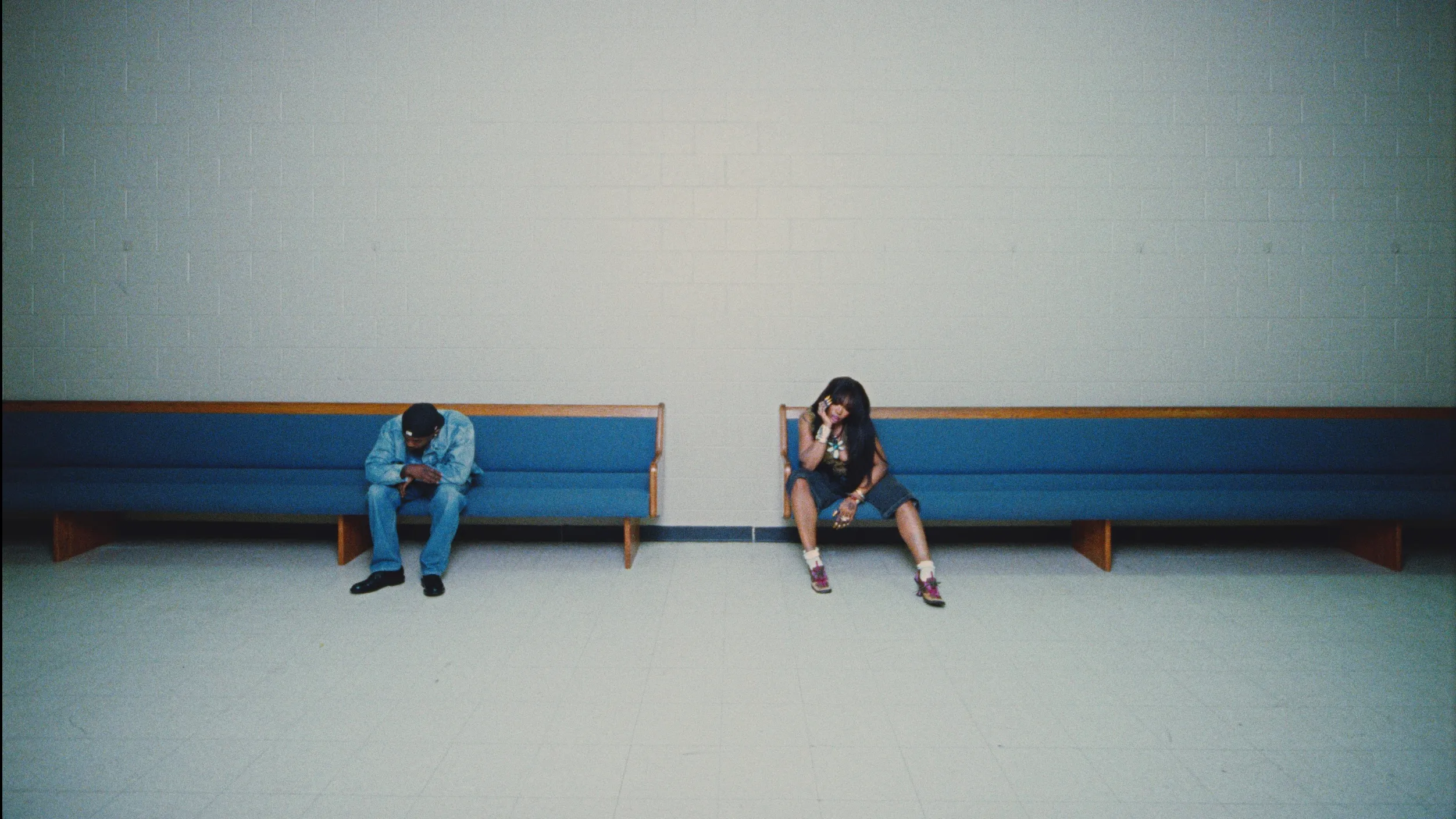Introduction: A Year of Shadows in Hip Hop
In the annals of hip hop, 2025 has already etched itself as a year of reckoning, a sonic battlefield where artists grapple with the ghosts of history, the banal cruelties of the present, and the flickering horrors of what might come next. As we stand in the crisp autumn of October, with leaves turning blood-red under city lights, the genre’s pulse feels heavier, more introspective, more unrelentingly raw than at any point in recent memory.
From the triumphant return of veteran duos like Clipse with their razor-sharp Let God Sort ‘Em Out, to Little Simz’s ethereal yet grounded Lotus, and even the posthumous revelations in Mac Miller’s Balloonerism, the landscape is rich with contenders for the crown of the year’s defining statement. Yet, amid this chorus of voices, one album rises like a specter from the fog: billy woods’ GOLLIWOG. Released on May 9th via Backwoodz Studioz and Rhymesayers Entertainment, this 18-track opus isn’t just an album—it’s a descent, a danse macabre, a mirror held up to the infinite ways fear shapes the human soul. And in a year teeming with excellence, GOLLIWOG stands unequivocally as the best hip hop album of 2025.
To understand why, we must first contextualize the year’s sonic terrain. Hip hop in 2025 has leaned into experimentation, with producers layering ambient dread over trap skeletons and rappers weaving Afropessimist threads into their narratives. Backxwash’s Only Dust Remains pulses with queer fury and electronic hauntings, while McKinley Dixon’s Magic, Alive! channels soulful jazz into meditations on Black joy amid apocalypse.
Antony Szmierek’s Service Station offers gritty UK road rap with a punk edge, and Saba & No ID’s collaborative From the Private Collections revives Chicago’s golden era with velvet introspection. These are all masterpieces in their own right, records that will age like fine whiskey, growing smoother with time. But GOLLIWOG transcends competition; it doesn’t vie for attention—it commands it, pulling listeners into a vortex where history, nightmare, and survival blur into one inescapable truth.
billy woods, the enigmatic Brooklyn-based rapper born in North Carolina and raised partly in Zimbabwe, has long been hip hop’s shadowy philosopher. At 46, he’s not chasing trends; he’s excavating the underbelly of existence. His discography—a labyrinth of solo joints, Armand Hammer collaborations with ELUCID, and scattered EPs—has built a cult following among those who crave density over digestibility. Albums like Hiding Places (2019), Aethiopes (2022), and Maps (2023) established him as a master of
oblique storytelling, where bars unfold like riddles from a fever dream. But GOLLIWOG marks a pivot, his first solo full-length since Terror Management in 2019, and it’s his most ambitious yet. Clocking in at just under 50 minutes, it’s a compact inferno, produced by a murderers’ row including EL-P, The Alchemist, Kenny Segal, and Shabaka Hutchings. Features from Bruiser Wolf, Despot, ELUCID, and others add sparks to the tinder, but it’s woods’ voice—stentorian, conversational, laced with Zimbabwean cadences—that anchors the chaos.
What elevates GOLLIWOG to the pinnacle of 2025’s output is its unflinching fusion of horrorcore aesthetics with profound socio-political dissection. This isn’t schlocky jump-scare rap; it’s a gothic treatise on fear as both oppressor and illuminator. Drawing from the Black horror canon—think Jordan Peele’s cerebral terrors or Tananarive Due’s folkloric chills—woods crafts vignettes that feel like short stories from Mariana Enríquez’s Things We Lost in the Fire.
The album’s title alone is a provocation: “golliwog,” a term born from a 19th-century British children’s book character, a Blackface caricature that morphed into a global racial slur and now fetches collector’s prices in antique shops. woods reclaims it not as polemic but as metaphor—a malevolent ragdoll stuffed with pins, a vessel for the world’s accumulated dread. In a year where hip hop contends with AI deepfakes, escalating climate collapse, and resurgent fascism, GOLLIWOG arrives as the perfect artifact: terrifying, hilarious, and profoundly human.
As we dissect this behemoth, we’ll journey through its origins, its sonic architecture, a track-by-track odyssey, and its rippling impact. By the end, it’ll be clear why, in the pantheon of 2025’s hip hop triumphs, GOLLIWOG reigns supreme—a record that doesn’t just sound like the future; it warns us of the one we’re building.
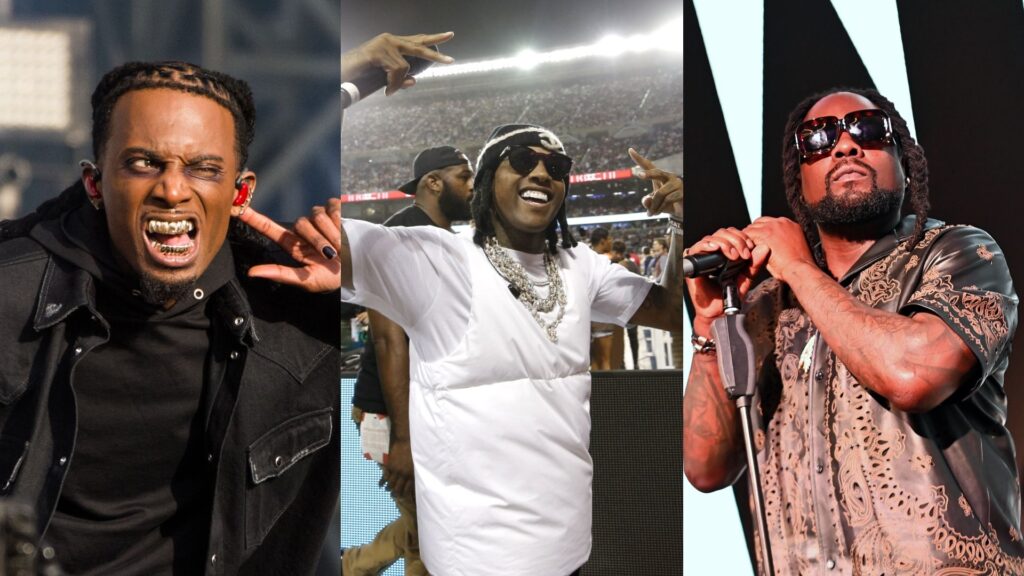
billy woods: The Architect of Obscurity
To grasp GOLLIWOG‘s brilliance, one must first navigate the labyrinthine career of billy woods. Emerging in the late 2000s from Washington’s underground scene, woods—real name Billy Woods—co-founded Backwoodz Studioz in 2007 with ELUCID, turning it into a haven for experimental rap that prioritizes artistic risk over commercial viability.
His early work, like the 2008 tape The Unforeseen, was raw and unpolished, a product of a mind shaped by displacement. Born to a Jamaican mother and an American father, woods spent formative years in Zimbabwe during the post-independence era, witnessing the euphoric promise of liberation curdle into economic ruin and political repression. This duality—American optimism clashing with African realism—infuses his music with a restless hybridity, where bars toggle between wry American slang and the weight of global south fatalism.
woods’ breakthrough came with 2013’s Dour Candy, a hazy, lo-fi affair that caught the ear of indie tastemakers. But it was the 2016 Armand Hammer debut Rome that signaled his ascent, a collaboration with ELUCID that blended dusty samples with Marxist musings on empire’s decay. From there, the floodgates opened: Shades (2018), a meditative EP; Hiding Places (2019), his solo debut on Backwoodz proper, produced by Kenny Segal’s warm, warped beats; and the collaborative explosion of Paraffin and Ramda with Kenny Segal in 2019-2020. These records established woods as hip hop’s premier obscurantist, a rapper whose lyrics demand multiple listens, rewarding the patient with layers of allusion—from Frantz Fanon to MF DOOM to Zimbabwean folklore.
2022’s Aethiopes, produced by Preservation, marked a commercial high-water mark, its ancient Ethiopian title evoking biblical curses and colonial plunder. Tracks like “Asylum” and “Spongebob” juxtaposed personal anecdotes with geopolitical barbs, earning woods spots on year-end lists and a growing fanbase beyond niche circles. Then came Maps in 2023, another Segal joint, a peripatetic travelogue through woods’ psyche that felt lighter, almost playful amid the darkness. It was a palate cleanser, but GOLLIWOG represents a deliberate swerve back into the abyss.
What sets woods apart in 2025’s crowded field is his refusal to pander. While peers like Little Simz polish their edges for broader appeal or Clipse lean on nostalgic grit, woods doubles down on opacity. His flow is deliberate, pausing at line breaks like a storyteller around a campfire, his voice a gravelly baritone that can shift from deadpan to demonic in a breath. Influences abound: the masked mysticism of DOOM, the stream-of-consciousness of Aesop Rock, the political fire of Public Enemy. Yet woods synthesizes them into something uniquely his—an Afropessimist lens on horror, where Black existence isn’t heroic triumph but a sly navigation of perpetual threat.
In interviews (rare as they are), woods has cited Stephen King and Mariana Enríquez as touchstones, not for scares but for their ability to make the mundane monstrous. “Horror is the genre that best captures how it feels to be Black in America,” he once said, echoing Jordan Peele’s ethos. GOLLIWOG embodies this, transforming everyday banalities—evictions, online trolls, medical bills—into spectral visitations. It’s woods at his peak, synthesizing two decades of evolution into a record that feels both inevitable and revolutionary. In a year where hip hop’s elders like The Weeknd flirt with R&B crossover and newcomers chase viral TikTok bars, woods reminds us why the genre endures: as a vessel for uncomfortable truths.
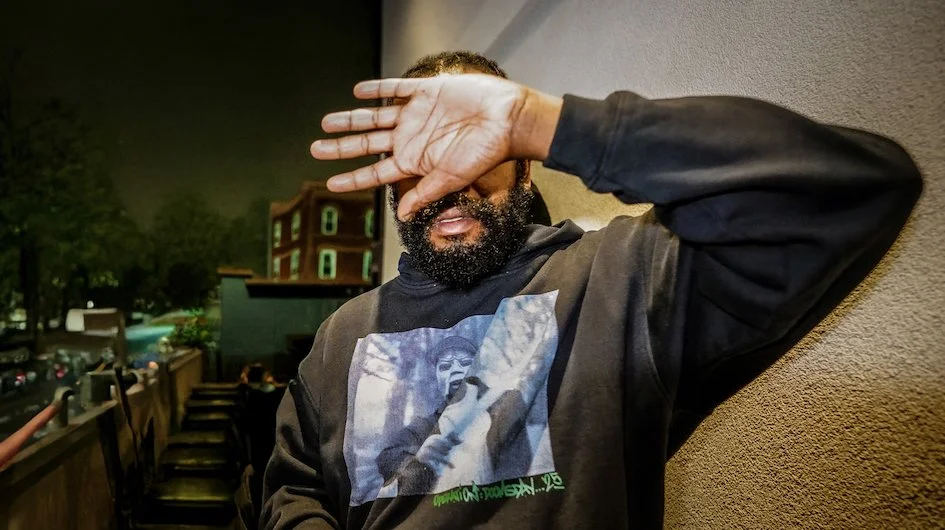
The Golliwog: Symbolism, Fear, and the Eternal Return of History
At the heart of GOLLIWOG lies its titular specter, a word laden with centuries of baggage. The golliwog originated in 1895 as a character in Florence Upton’s children’s books—a grinning, wild-haired doll modeled after minstrel show Blackface. B
y the mid-20th century, it became a British toy icon, only to be condemned as racist shorthand, banned from shelves, and relegated to collector’s auctions where it fetches thousands. woods, ever the historian, seizes this artifact not for reclamation but for reanimation. The album cover, photographed by Alexander Richter, depicts a handmade golliwog doll—stitched eyes vacant, mouth frozen in perpetual mirth—staring out from a shadowed shelf. It’s no accident; this ragdoll recurs as motif, a voodoo effigy pin-pricked with the world’s ills.
Thematically, GOLLIWOG posits fear as history’s undead twin, shambling forward without past tense. woods draws from Fanon’s Black Skin, White Masks, where colonization is “amputation,” a psychic severing that leaves survivors grasping at ghosts. Tracks like “Maquiladoras” unpack this, rapping, “He had the wrong answer to the right fucking question / Amputation how you survive.” Here, the golliwog embodies the colonized self—stitched together from scraps of trauma, grinning through the pain. But woods flips the script: the doll isn’t victim; it’s agent, a “ragdoll playing dead” that strikes when least expected.
This conceit allows GOLLIWOG to weave personal and collective horrors. Domestic violence lurks in “Waterproof Mascara,” where a child’s eavesdropped sobs echo through walls like poltergeists. Colonial echoes resound in “BLK ZMBY,” zombies as metaphors for displaced refugees fleeing corrupt regimes, nodding to Fela Kuti’s Afrobeat rage. Even modern banalities get the treatment: “STAR87” savages internet racism, with woods taunting trolls, “Leave the comments on / The racism pouring in / This is how I win.” The album’s Afropessimism—coined by Frank Wilderson to describe Blackness as social death—permeates, but woods injects gallows humor, a defiant chuckle in the dark. “Them crackers won’t make it to Mars,” he sneers on “Corinthians,” mocking billionaire escapism.
Structurally, GOLLIWOG mimics a horror anthology, each track a self-contained nightmare linked by recurring motifs: looping cries, ticking clocks, warped laughter. It’s cinematic, evoking Cat’s Eye‘s interlocking tales or Peele’s Get Out as social allegory. In 2025, as global migrations swell and AI amplifies hate, this feels prescient. Compared to peers, Simz’s Lotus blooms with hope, Clipse cuts with precision— but GOLLIWOG burrows deeper, forcing confrontation with the monsters we birth. It’s not escapism; it’s exorcism, and in doing so, it redefines hip hop’s capacity for terror.
Sonic Architecture: A Carnival of Ghosts
If lyrics are GOLLIWOG‘s soul, production is its haunted house—creaking floors, flickering lights, shadows that whisper. For the first time, woods forgoes a single producer, assembling an all-star cadre whose beats coalesce into a unified nightmare. EL-P’s “Corinthians” thunders with futuristic doom, heavy synths and distorted guitars evoking Run the Jewels’ bombast but stripped to skeletal dread. The Alchemist’s contributions, like on “Pitchforks & Halos,” deploy dusty soul loops twisted into unease, a weeping vocal sample trailing like a banshee.
Kenny Segal returns for “Misery” and “Born Alone,” his signature warmth curdled into something sinister—jazzy keys buckling under bass that gurgles like drowning. Conductor Williams’ “STAR87” wobbles with pitch-unsteady strings, a trap car time-traveling through paranoia. Shabaka Hutchings, the saxophonist from The Comet Is Coming, infuses “All These Worlds Are Yours” with sparse industrial ambience, his horn a mournful wail over DJ Haram’s metallic scrapes. Messiah Musik’s “Golgotha” seasicks with off-kilter horns, while Steel Tipped Dove’s “Jumpscare” opens with a rolling projector reel and ice-cream truck chimes gone wrong.
This ensemble approach yields a “wow and flutter” effect—tapes degrading in real time, rhythms pattering like rain on a coffin. Drums fizzle more than they boom, melodies smother rather than soothe. Guests like Human Error Club on “Dislocated” add experimental jazz filigree, LA’s trio layering freeform improv over woods’ deadpan. Bruiser Wolf’s gravelly bark on “BLK XMAS” cuts through like a chainsaw, while Despot’s rare verse on “Corinthians” revives Def Jux ghosts.
The result is a black carnival in a muddy field: empty rides whirring, laughter echoing hollowly. Unlike Maps‘ nimble grooves, GOLLIWOG dissolves rather than explodes, building tension through repetition—a looped cry in “Waterproof Mascara” building to reverb-drenched “Surprise!” It’s hip hop as horror soundtrack, rivaling El-P’s work with Killer Mike but introspective, solitary. In 2025’s production trends—Saba’s lush soul, Backxwash’s glitch—woods’ haunted tapestry stands alone, a sonic mausoleum where every sample hides a scream.
Track-by-Track: Navigating the Nightmare
GOLLIWOG unfolds as 18 vignettes of varying length, a non-linear maze where tracks bleed into each other like fever recollections. Here’s the full descent:
- Jumpscare (prod. Steel Tipped Dove, 3:16): The opener reels you in with cinematic tropes—a projector whirrs, clocks tick metronomically, metallic scrapes evoke claws on wood. An ice-cream truck melody warps into dissonance, then woods enters: “Ragdoll playing dead / Rabid dog in the yard, car won’t start, it’s bees in your head.” It’s a deadpan chase scene, gallows humor masking primal terror. The brief scream midway isn’t cheap; it’s punctuation, launching into a verse on inescapable pursuit. At under four minutes, it sets the tone: no safety, only sustained dread.
- STAR87 (prod. Conductor Williams, 2:37): Feverish paranoia distilled. Wobbly basslines and a ringtone loop mimic a glitchy pager from ’87, woods narrating betrayal: “Had to do ’em greasy like cold spare ribs in the sallow glow of an open fridge.” Online trolls flood the comments, racism a digital vampire—”This is how I win.” The flow winds like a spring, snapping on the hook, a sardonic anthem for the doxxed.
- Misery (prod. Kenny Segal, 2:12): A psychosexual fever dream, woods as vampire thrall: “Ragged holes in my throat, but I love to see those lips shiny with blood.” Stephen King vibes meet rap romance, Segal’s jazzy bed mournful, keys dripping like wax. It’s devotion as addiction, angst as ecstasy—short, sharp, unforgettable.
- BLK XMAS (feat. Bruiser Wolf, prod. Preservation, 3:10): Capitalism’s yuletide horror. Woods and Wolf trade bars over a TV-announcer cadence: “Horror, drama, suspense / It’s a thriller if you can pay the rent.” Eviction on Christmas Eve, scavenged toys amid rubble—”Neighbors just got turfed out a week before.” Preservation’s soul chop turns festive into funeral dirge, a Shirley Jackson tale in trap form.
- Waterproof Mascara (prod. Sadhugold, 2:53): Childhood trauma’s echo chamber. A looped woman crying builds tension, woods from the stairs: “Watched my mother cry… Half hoping you know who would die / Then he did.” Reverb “Surprise!” hits like a ghost’s gasp. Domestic violence as haunting, endurance the true monster—chilling ambiguity lingers.
- Counterclockwise (prod. The Alchemist, 3:02): Time’s unraveling, Alchemist’s dusty loop spinning backward. woods on memory’s trap: “Everything buffering, reality lag and jump / Sometimes barely recognize the people I love.” Dissociation as survival, the beat a Möbius strip of regret.
- Corinthians (feat. Despot, prod. EL-P, 3:45): Futuristic sermon, EL-P’s doomscape heavy with distorted guitars. woods mocks Mars-bound tycoons: “Them crackers won’t make it to Mars.” Despot’s verse revives old Def Jux fire, a biblical takedown of empire—”Way I see it, it ain’t no past tense.” Anthemic yet apocalyptic.
- Pitchforks & Halos (prod. Ant, 2:48): Moral ambiguity’s fork in the road. Ant’s soulful sample twists into judgment day, woods weighing sins: “Doctor read the X-rays while you read the doctor’s face.” Black humor in existential suspense, halos tarnished.
- All These Worlds Are Yours (feat. ELUCID, prod. DJ Haram & Shabaka Hutchings, 4:01): Wartime vignette, sparse ambience under Shabaka’s wailing sax. ELUCID joins for drone-strike dispatch: “Today I watched a man die in a hole from the comfort of my home / The drone flew real low, no rush, real slow.” Industrial dread meets free jazz, complicity’s cold math.
- Maquiladoras (prod. Messiah Musik, 3:22): Fanon’s ghost haunts this factory-floor nightmare. Seasick horns underpin “Amputation how you survive,” woods unspooling colonial scars. Labor as violence, borders as blades—brutal, unflinching.
- A Doll Fulla Pins (feat. Yolanda Watson & Jeff Markey, prod. Messiah Musik & Jeff Markey, 3:35): The title track’s kin, repetition weaponized: “Niggas” recurs smugger each time, pins driven deeper. Watson’s vocals ghostlike, Markey’s sax mournful—a voodoo lullaby of vengeance.
- Golgotha (prod. Messiah Musik, 2:59): House of ghosts, horns bucking like crucified thieves. “A house full of ghosts,” woods catalogs hauntings mundane and extreme, history’s skull place.
- Cold Sweat (feat. Ant, prod. Ant, 3:08): Repetition builds to twist: “Wake up in a cold sweat” loops, dreams of haunting landlords flipping the script. Darkly funny, Ant’s beat patters like fever chills.
- BLK ZMBY (prod. Steel Tipped Dove, 2:41): Zombies as exiles, Fela nods in trap cars time-warping. “Universities empty, the troublemakers drowned or drivin’ Uber overseas.” Undead uprising, Afrobeat rage digitized.
- Make No Mistake (prod. Messiah Musik, 3:14): Complicity’s confession: “It’s easy for you, but it’s hard for me to forget what we did ’cause we had to eat / At least that’s what we said when we did the deed.” Survival’s stain, beat sparse as guilt.
- Born Alone (prod. Kenny Segal, 2:55): Black humor in isolation: “My people fled to the mountains, but it’s nowhere the white man won’t go.” Segal’s warmth cloaks the void, birth as original sin.
- Lead Paint Test (feat. ELUCID & Cavalier, prod. ELUCID & Cavalier, 4:20): Hazy chill-out masking dread, lead paint as metaphor for poisoned legacies. ELUCID and Cavalier’s verses layer family curses, jazz trio filigree fluttering like contaminated dust.
- Dislocated (feat. ELUCID & Human Error Club, prod. Human Error Club, 3:50): Closer-cum-coda, joints popped from sockets. Freeform improv swirls around displacement: “Surprise!” echoes from earlier, unresolved. A shoulder shrug in the dark—history circles back.
This tracklist isn’t linear; it’s a loop, jumpscares recurring. At 48 minutes, it’s economical, each bar loaded. Compared to longer 2025 sprawls like Dixon’s Magic, Alive!, GOLLIWOG‘s precision amplifies impact.
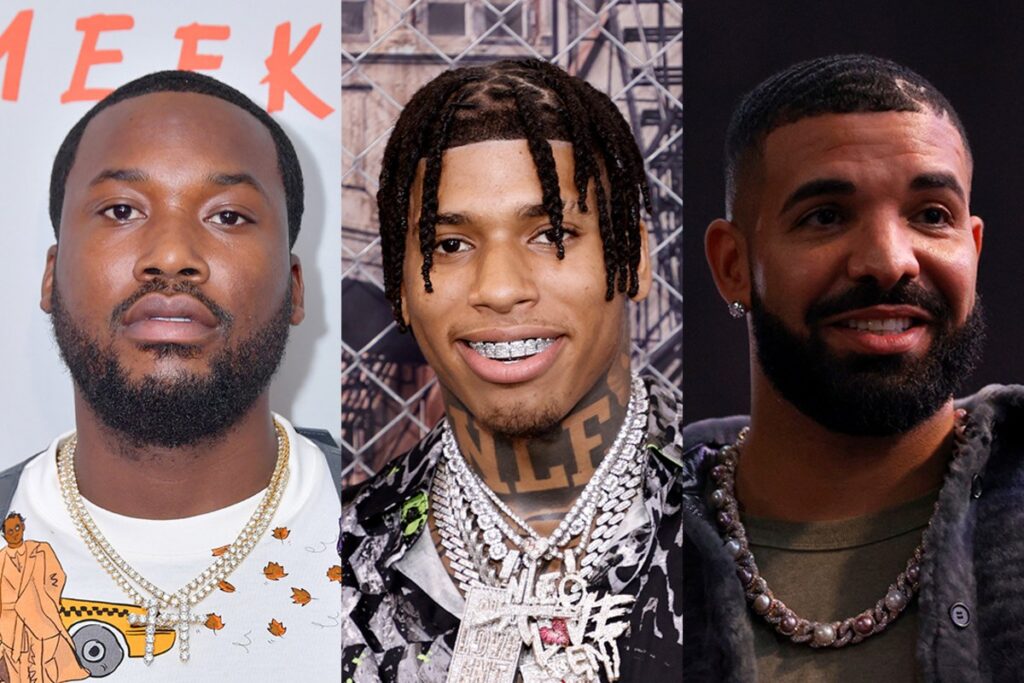
Lyrical Labyrinth: woods’ Stentorian Craft
woods’ pen is GOLLIWOG‘s scalpel, carving surreal fables from blunt truths. His style—enjambed lines, softened syllables, pauses like breaths in confession—mimics oral tradition, Zimbabwean griot meeting NYC cipher. Repetition wrings emotion: “Niggas” in “A Doll Fulla Pins” builds smug defiance; “Wake up in a cold sweat” spirals to revelation. Interpolations abound—MF DOOM’s masked wit twice, a “Not Like Us” tweak: “Sometimes you gotta pop in ’em and remind ’em.”
Humor blackens the dread: “Doctor read the X-rays while you read the doctor’s face.” Surrealism flourishes—vampire lovers, time-traveling zombies, Fanon dying onstage. Yet accessibility reigns; no bar demands a PhD, just attention. In 2025’s lyricism—Simz’s clarity, Clipse’s punch—woods’ density shines, intellect and ear in harmony.
Reception and Ripples: A Cultural Reckoning
GOLLIWOG dropped into a receptive void, Pitchfork’s 8.7 and Best New Music seal affirming its mastery. Rolling Stone hailed it a “tour de force of horror stories,” Treble a “macabre masterpiece,” The Line of Best Fit 9/10 for its “unflinching truths.” User forums buzzed—Reddit’s r/hiphopheads threading DOOM parallels, AOTY averaging 92/100. Streams surged, Backwoodz sales spiked, woods’ tours sold out.
Impact-wise, it refracts 2025’s anxieties: eviction crises in “BLK XMAS” amid housing wars, drone ethics in “All These Worlds.” It inspires—young rappers cite its anthology structure, producers ape its haunt. Critically, it elevates horrorcore beyond gimmick, proving hip hop’s elasticity. Against 2025’s field, it edges Lotus for depth, Let God Sort ‘Em Out for innovation—the album that defines the year.
Conclusion: Why GOLLIWOG Endures as 2025’s Sovereign
In October’s chill, GOLLIWOG lingers like a half-remembered nightmare—unsettling, illuminating, alive. Billy Woods has crafted not just the best hip-hop album of 2025, but a timeless dispatch from the frontlines of dread. It challenges, terrifies, and ultimately liberates, reminding us that facing monsters is the only path through. As the year wanes, lesser records fade; GOLLIWOG haunts eternally.

